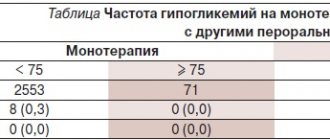Ganaton
The main purpose of the drug ganaton (itopride) is to stimulate the tone and motility of the digestive tract. The drug is used for the symptomatic correction of signs of chronic gastritis (relief of discomfort, bloating and abdominal pain, relief from nausea, vomiting and anorexia).
Today, diseases manifested by disorders of gastrointestinal motility are much more common than half a century ago. In this regard, the introduction into practice of new and improvement of already used medicines that can properly improve the functioning of the esophagus, stomach and intestines is a task of increased importance. The drug ganaton is successfully used for two main pathological conditions of the digestive tract: GERD (this scary abbreviation stands for gastroesophageal reflux disease) and functional dyspepsia. GERD develops as a result of the backflow of stomach contents into the esophagus. This is a chronic disease that periodically worsens, but each subsequent time its symptoms become more pronounced. GERD is manifested by heartburn, sour or bitter belching, regurgitation of food, and difficulty swallowing. The greatest damage from GERD occurs in the esophagus, which is damaged by the aggressively acidic contents of the stomach. As for functional dyspepsia, it consists of a group of symptoms that persist for several months, including burning and pain in the epigastric region (“in the pit of the stomach”), a feeling of fullness in the stomach, and premature satiety. The pathogenesis of functional dyspepsia is based on impaired motility of the stomach and duodenum, functional weakness of the antrum (opening into the duodenum) of the stomach and general antroduodenal uncoordination.
The “gold standard” in the treatment of these and etiologically related diseases and pathological conditions are prokinetics, to which Ganaton has the honor to belong. This is a new prokinetic agent that is advisable to prescribe in the initial stages of gastrointestinal diseases. The name itself is “ganatone”, and this is an abbreviation for the English “gastric natural tone”, i.e. “restoring normal gastric tone” quite eloquently indicates its main purpose. The drug has a dual mechanism of action. Firstly, it suppresses the enzyme acetylcholinesterase while simultaneously increasing the motility of the digestive tract, and secondly, it takes an extremely radical position on dopamine D2 receptors, which also causes stimulation of gastrointestinal motility. Ganaton makes the process of gastric emptying faster, reducing the transit time of the bolus of food through the small intestine. The drug also has an antiemetic effect, which is associated with blocking the D2 chemoreceptors of the trigger zone of the vomiting center of the medulla oblongata.
Despite its relative “youth”, the drug ganaton has already gained strong authority, incl. and in Russia. Thus, a comparative study of ganaton and the drug domperidone, which has long been used for GERD and functional dyspepsia, was conducted at the Volgograd State Medical University. At the same time, ganaton showed the best results, additionally demonstrating such advantages over its rival as the absence of extrapyramidal side reactions, minimal interaction with other drugs, and metabolism in the absence of cytochrome P-450.
Ganaton is available in tablets. The dosage regimen and frequency of administration of the drug are as follows: 50 mg 3 times a day, with the possibility of reducing the dose taking into account the patient’s age.
Ganaton®
Suction
Itopride hydrochloride is rapidly and almost completely absorbed from the gastrointestinal tract. Relative bioavailability is 60%, which is due to first-pass metabolism through the liver. Food has no effect on bioavailability. The maximum concentration in blood plasma (Cmax 0.28 mcg/ml) is achieved 0.5-0.75 hours after taking 50 mg of itopride hydrochloride.
When itopride hydrochloride was repeatedly taken orally at a dose of 50-200 mg three times a day for 7 days, the pharmacokinetics of the drug and its metabolites were linear, and accumulation was minimal.
Distribution
Itopride hydrochloride is 96% bound to plasma proteins, mainly albumin. Binding to alpha1-acid glycoprotein accounts for less than 15% of total binding.
Itopride is actively distributed into tissue (volume of distribution Vdβ = 6.1 l/kg) and is found in high concentrations in the kidneys, small intestine, liver, adrenal glands and stomach. Penetration into the brain and spinal cord is minimal. Itopride passes into breast milk.
Metabolism
Itopride undergoes active biotransformation in the human liver. 3 metabolites have been identified, only one of which exhibits small activity that has no pharmacological significance (approximately 2-3% of that of itopride). The primary metabolite in humans is N-oxide, which is formed as a result of oxidation of the tertiary amino-N-dimethyl group.
Itopride is metabolized by flavin-dependent monooxygenase (FMO3). The amount and effectiveness of FMO isoenzymes in humans may vary due to genetic polymorphisms, which in rare cases lead to the development of an autosomal recessive condition known as trimethylaminuria (fishy odor syndrome).
Based on pharmacokinetic studies of CYP-mediated reactions in vivo
itopride does not have an inhibitory or inducing effect on the isoenzymes CYP2C19 and CYP2E1. Itopride therapy does not affect CYP or uridine diphosphate glucuronyl transferase activity.
Removal
Itopride hydrochloride and its metabolites are excreted mainly in the urine. Renal excretion of itopride and its N-oxide after a single oral dose of the drug at a therapeutic dose (50 mg) in healthy people was 3.7 and 75.4%, respectively. The half-life of itopride hydrochloride is approximately 6 hours.
Ganaton, 70 pcs., 50 mg, film-coated tablets
Ganaton - stimulating the tone and motility of the gastrointestinal tract.
Pharmacodynamics
Mechanism of action. Itopride hydrochloride enhances gastric motility by antagonizing D2-dopamine receptors and inhibiting acetylcholinesterase. Itopride activates the release of acetylcholine and inhibits its destruction.
Itopride hydrochloride also provides an antiemetic effect due to interaction with D2 receptors located in the trigger zone. Itopride causes dose-dependent suppression of apomorphine-induced vomiting.
Itopride hydrochloride activates propulsive gastric motility through antagonism of D2 receptors and dose-dependent inhibition of acetylcholinesterase activity.
Itopride hydrochloride has a specific effect on the upper gastrointestinal tract, accelerates gastric transit and improves gastric emptying. Itopride hydrochloride does not affect serum gastrin levels.
Pharmacokinetics
Suction. Itopride hydrochloride is rapidly and almost completely absorbed from the gastrointestinal tract. Its relative bioavailability is 60%, which is associated with first-pass metabolism through the liver. Food has no effect on bioavailability.
After taking 50 mg of itopride hydrochloride orally, Cmax is reached after 0.5–0.75 hours and is 0.28 mcg/ml. When the drug was repeated at a dose of 50–200 mg 3 times a day for 7 days, the pharmacokinetics of the drug and its metabolites were linear, and accumulation was minimal.
Distribution. Binds to plasma proteins (mainly albumin) by 96%. Binding to α1-acid glycoprotein accounts for less than 15% of total binding.
Actively distributed in tissues (Vd is 6.1 l/kg) and is found in high concentrations in the kidneys, small intestine, liver, adrenal glands and stomach. Penetrates the brain and spinal cord in minimal quantities. Passes into breast milk.
Metabolism. Itopride undergoes active biotransformation in the liver. 3 metabolites have been identified, only one of which exhibits small activity that has no pharmacological significance (approximately 2–3% of that of itopride). The primary metabolite is N-oxide, which is formed as a result of oxidation of the quaternary amino-N-dimethyl group.
Itopride is metabolized by flavin-dependent monooxygenase (FMO3). The amount and effectiveness of FMO3 isoenzymes in humans may vary depending on genetic polymorphisms, which in rare cases lead to the development of an autosomal recessive condition known as trimethylaminuria (fishy odor syndrome). In patients with trimethylaminuria, T1/2 of itopride increases.
According to in vivo pharmacokinetic studies, itopride does not have an inhibitory or inducing effect on CYP2C19 and CYP2E1. Itopride therapy does not affect CYP or uridine diphosphate glucuronyl transferase activity.
Excretion. Itopride hydrochloride and its metabolites are excreted mainly in the urine. Renal excretion of itopride and its N-oxide after a single oral dose of the drug in therapeutic doses in healthy people was 3.7 and 75.4%, respectively.
Terminal T1/2 of itopride hydrochloride is about 6 hours.
Daily life of patients with irritable bowel syndrome: travel and trips
Plan your trip carefully
1.1. When planning a trip, it is worth (if possible) to choose a trip by personal vehicle. Some people may feel more comfortable traveling by car because they have the ability to stop when necessary to use the restroom or rest.
Traveling by private car allows you to better control what is happening, since you are not dependent on the plans of others or transport schedules. Patients with diarrhea-predominant IBS often reasonably avoid buses and other vehicles that do not have accessible toilets. If you must travel by bus, make sure you know how long the trip will be and how many times the bus will stop. So, you can try to schedule your bathroom trips according to your stops.
1.2. When planning your flight, try to get to the airport on time, if possible in advance. This will allow you to use the restroom to perform hygiene procedures if necessary.
1.3. Air travel can be problematic for those suffering from IBS symptoms. In this case, try to choose a place as close to the toilets as possible. An aisle seat is preferred so that you do not have to disturb other passengers.
1.4. Carry an extra small bag, briefcase or backpack with you to store extra toilet paper or wet wipes. You can also carry a bottle of antibacterial hand gel with you in case there is no soap in the toilet. This advice may also be useful in case of lost luggage.
1.5. When choosing a motel or hostel to stay in another city, make sure that your room has a private bathroom. This will allow you to use the toilet when needed without having to accommodate others. If you plan to arrive at your hotel before your room check-in time, please use the restroom in the hotel lobby or ask in advance about early check-in.
1.6. If your trip is long, plan your walking and driving routes in advance, taking into account the location and accessibility of restrooms. Try to choose the shortest path. Remember that at airports and at railway and bus stations in Russia and other countries, access to toilets is free (in the Russian Federation, toilets at railway stations are free for all visitors from January 1, 2022). You can also find toilets at gas stations, large shopping centers, markets, public beaches, public parks, museums, theaters, and cinemas. According to the sanitary rules of the Russian Federation, all cafes and restaurants are equipped with toilets (alas, many of them can only be accessed by making an order).
And, of course, public toilets (free and paid) in the form of cubicles, which can be found in large cities in Russia and other countries. To search for the nearest toilets, you can use some mobile applications (for example, “2GIS” or another convenient for you).
1.7. If you are traveling abroad, it would be a good idea to know a few phrases in the local or English language: for example, where the nearest toilet is or where there might be one (see point 6). You should also remember the words "left", "right" and "straight ahead" to understand the person's response. The worst thing you can think of is having a long and confusing conversation in a foreign language while you desperately need to go to the toilet. You can write down the necessary phrases, or use a translator if necessary.


